The Health Policy Project ended in 2016. Work continued under Health Policy Plus (HP+) until 2022.
Resources
Search Publications
News from 2014
- Government of Uganda launches the Uganda Family Planning Costed Implementation Plan, 2015–2020
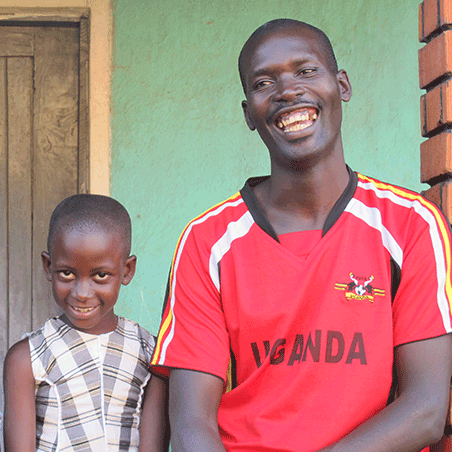 Posted December 11, 2014 KAMPALA, Uganda—Uganda’s Ministry of Health launched the Uganda Family Planning Costed Implementation Plan, 2015–2020 (FP-CIP) on November 27, 2014. Full implementation of the FP-CIP will reduce Uganda’s unmet need for family planning to 10 percent and increase the modern contraceptive prevalence rate among married women to 50 percent by 2020. Full implementation is also projected to increase the number of women in Uganda currently using modern contraception from approximately 1.7 million users in 2014 to 3.7 million in 2020
Posted December 11, 2014 KAMPALA, Uganda—Uganda’s Ministry of Health launched the Uganda Family Planning Costed Implementation Plan, 2015–2020 (FP-CIP) on November 27, 2014. Full implementation of the FP-CIP will reduce Uganda’s unmet need for family planning to 10 percent and increase the modern contraceptive prevalence rate among married women to 50 percent by 2020. Full implementation is also projected to increase the number of women in Uganda currently using modern contraception from approximately 1.7 million users in 2014 to 3.7 million in 2020
[ more ]- Federal Ministry of Health of Nigeria Launches the Nigeria Family Planning Blueprint (Scale-Up Plan)
 Posted December 11, 2014 ABUJA, Nigeria—Nigeria’s Federal Ministry of Health launched the Nigeria Family Planning Blueprint (Scale-Up Plan), 2014–2018 at the Third Family Planning Conference, held in Abuja from November 26– 28, 2014. The goal of the Blueprint is to raise the contraceptive prevalence rate (CPR) among married women from 15 percent to 36 percent, thereby averting 1.6 million unintended pregnancies, as well as 400,000 infant and 700,000 child deaths, by the year 2018.
Posted December 11, 2014 ABUJA, Nigeria—Nigeria’s Federal Ministry of Health launched the Nigeria Family Planning Blueprint (Scale-Up Plan), 2014–2018 at the Third Family Planning Conference, held in Abuja from November 26– 28, 2014. The goal of the Blueprint is to raise the contraceptive prevalence rate (CPR) among married women from 15 percent to 36 percent, thereby averting 1.6 million unintended pregnancies, as well as 400,000 infant and 700,000 child deaths, by the year 2018.
[ more ]- HPP Trains Caribbean Physicians on Transgender Healthcare
 Posted November 4, 2014 KINGSTON, Jamaica—In the Caribbean, transgender persons are disproportionately affected by HIV and vulnerable to a range of sexually transmitted infections. Moreover high levels of stigma and discrimination create significant barriers and make it difficult for them to access the health care services they need. Most clinicians in this region also do not receive any training on transgender health or broader issues of sexuality and diversity, further limiting transgender-friendly services.
Posted November 4, 2014 KINGSTON, Jamaica—In the Caribbean, transgender persons are disproportionately affected by HIV and vulnerable to a range of sexually transmitted infections. Moreover high levels of stigma and discrimination create significant barriers and make it difficult for them to access the health care services they need. Most clinicians in this region also do not receive any training on transgender health or broader issues of sexuality and diversity, further limiting transgender-friendly services.
[ more ]- Transforming Gender Norms, Roles and Power Dynamics for Better Health in India
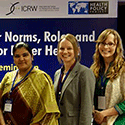 Posted October 27, 2014 NEW DELHI, India—A dissemination event and two-day workshop held October 15-17, 2014, in New Delhi, India, shared findings from a systematic review of the influences of gender-integrated programming on health outcomes. Workshop participants learned about integrating evidence-based gender strategies into health policies and programs as well as how to monitor and evaluate gender-integrated programs. The systematic review was carried out under the Gender, Policy, and Measurement program, which is funded by the USAID Asia Bureau and is jointly implemented by the Health Policy Project and MEASURE Evaluation.
Posted October 27, 2014 NEW DELHI, India—A dissemination event and two-day workshop held October 15-17, 2014, in New Delhi, India, shared findings from a systematic review of the influences of gender-integrated programming on health outcomes. Workshop participants learned about integrating evidence-based gender strategies into health policies and programs as well as how to monitor and evaluate gender-integrated programs. The systematic review was carried out under the Gender, Policy, and Measurement program, which is funded by the USAID Asia Bureau and is jointly implemented by the Health Policy Project and MEASURE Evaluation.
[ more ]- Health Policy Project Supports the Restructuring of Mombasa County Health Services
 Posted October 23, 2014 MOMBASA, Kenya—The Health Policy Project (HPP) in Kenya recently gave assistance to the Mombasa County Department of Health to develop a new organisational structure as part of its ongoing restructuring efforts. The new structure will help to clarify roles and responsibilities in the management of health services in the county under the devolved governance system.
Posted October 23, 2014 MOMBASA, Kenya—The Health Policy Project (HPP) in Kenya recently gave assistance to the Mombasa County Department of Health to develop a new organisational structure as part of its ongoing restructuring efforts. The new structure will help to clarify roles and responsibilities in the management of health services in the county under the devolved governance system.
[ more ]- Press Release: Making Children a Priority in Haiti in the National Response to Violence Against Children
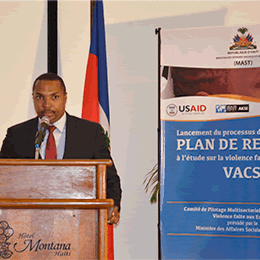 Posted October 17, 2014 PETION-VILLE, Haiti—“Let the children of Haiti be our only priority” (« Faisons des enfants d’Haïti notre seule priorité » ) said the Minister of Social Affairs and Work (Ministre des Affaires Sociales et du Travail), Charles Jean Jacques, as he officially launched the national plan to address violence against children in Haiti, an effort to strengthen national monitoring and reporting systems for cases of child abuse. The October 14 event was hosted by the multisectoral committee in charge of the development of the National Response Plan Against Violence Against Children. Participants included the honorable Ambassador of United States in Haiti, Pamela A. White, representatives from different agencies from the United Nations, international organizations, and other representatives who work in the Haitian civil society.
Posted October 17, 2014 PETION-VILLE, Haiti—“Let the children of Haiti be our only priority” (« Faisons des enfants d’Haïti notre seule priorité » ) said the Minister of Social Affairs and Work (Ministre des Affaires Sociales et du Travail), Charles Jean Jacques, as he officially launched the national plan to address violence against children in Haiti, an effort to strengthen national monitoring and reporting systems for cases of child abuse. The October 14 event was hosted by the multisectoral committee in charge of the development of the National Response Plan Against Violence Against Children. Participants included the honorable Ambassador of United States in Haiti, Pamela A. White, representatives from different agencies from the United Nations, international organizations, and other representatives who work in the Haitian civil society.
[ PDF 178KB ]- Public-Private Partnership Hospitals to Bring High-Quality Health Services to More Afghans
Posted October 15, 2014 In October 2014, the Afghan Ministry of Public Health (MoPH) issued the first request for private companies to take on the operation of three of the country’s donor-built hospitals. Referred to as public-private partnerships (PPP), these agreements allow private sector companies to provide services (such as healthcare) that are traditionally provided by the public sector (i.e., government). The MoPH will issue a request for qualification (RFQ) that will begin a bidding process among private companies to operate the first of three hospitals, the Sheik Zayed Women’s and Children’s Hospital; RFQs for Jinnah and Jamhoriat General Hospitals will follow within 4–6 months.
[ more ]- HPP Supports County Teams in Kenya to Deliberate the Health Agenda
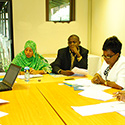 Posted October 7, 2014 NAIROBI, Kenya—The USAID-funded Health Policy Project (HPP) recently convened a consultative forum for leaders of county health services in Kenya. The two-day meeting brought together County Executive Committee (CEC) members for health from 35 of Kenya’s 47 counties to share experiences in managing devolved health services in the country and to identify issues requiring further discussion with the national Ministry of Health (MoH).
Posted October 7, 2014 NAIROBI, Kenya—The USAID-funded Health Policy Project (HPP) recently convened a consultative forum for leaders of county health services in Kenya. The two-day meeting brought together County Executive Committee (CEC) members for health from 35 of Kenya’s 47 counties to share experiences in managing devolved health services in the country and to identify issues requiring further discussion with the national Ministry of Health (MoH).
[ more ]- Haiti: All Eyes on the New Paternity Act
 Posted September 16, 2014 PORT-AU-PRINCE, Haiti—Making great strides toward the equal protection of children, the government of Haiti signed into effect a new law, Loi sur la paternité, la maternité et la filiation, in June of this year (Moniteur No 105). The law, commonly known as the Responsible Parenthood Act, requires parents to afford equal opportunities to children born in- and outside of wedlock.
Posted September 16, 2014 PORT-AU-PRINCE, Haiti—Making great strides toward the equal protection of children, the government of Haiti signed into effect a new law, Loi sur la paternité, la maternité et la filiation, in June of this year (Moniteur No 105). The law, commonly known as the Responsible Parenthood Act, requires parents to afford equal opportunities to children born in- and outside of wedlock.
[ more ]- Modeling Projections Help Ukraine Propose Most Efficient HIV Investment
 Posted September 9, 2014 KIEV, Ukraine—Even in the midst of conflict, Ukraine is focusing attention on HIV, and working with international partners to address the problem. Since the mid-1990s, the estimated number of new HIV infections among adults in Ukraine has declined, but among certain key populations at high risk of infection—such as men who have sex with men and clients of female sex workers—the incidence continues to increase. Since 2009, a strategic plan has guided Ukraine’s National AIDS Programme (NAP), largely with support from the Global Fund for AIDS, Tuberculosis and Malaria, but it has not offered adequate access to prevention, treatment, and care to these key populations most in need of services.
Posted September 9, 2014 KIEV, Ukraine—Even in the midst of conflict, Ukraine is focusing attention on HIV, and working with international partners to address the problem. Since the mid-1990s, the estimated number of new HIV infections among adults in Ukraine has declined, but among certain key populations at high risk of infection—such as men who have sex with men and clients of female sex workers—the incidence continues to increase. Since 2009, a strategic plan has guided Ukraine’s National AIDS Programme (NAP), largely with support from the Global Fund for AIDS, Tuberculosis and Malaria, but it has not offered adequate access to prevention, treatment, and care to these key populations most in need of services.
[ more ]- “I’m Already Changed”: Women’s Leadership Workshop Acts as Catalyst for Change
 NAIROBI, Kenya—On July 14, 2014, the Health Policy Project’s third annual Women’s Leadership in Family Planning and Reproductive Health Workshop brought together 22 women from six countries—Ethiopia, Ghana, Kenya, Malawi, Tanzania, and Uganda—for three weeks of intensive capacity development designed to help them become stronger leaders and more effective advocates for family planning and reproductive health (FP/RH) issues
NAIROBI, Kenya—On July 14, 2014, the Health Policy Project’s third annual Women’s Leadership in Family Planning and Reproductive Health Workshop brought together 22 women from six countries—Ethiopia, Ghana, Kenya, Malawi, Tanzania, and Uganda—for three weeks of intensive capacity development designed to help them become stronger leaders and more effective advocates for family planning and reproductive health (FP/RH) issues
[ more ]- New Law on Child Adoptions Launched in Haiti
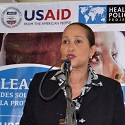 PETION-VILLE, Haiti—In partnership with the Institute for Social Welfare and Research (l’Institut du Bien-Être Social et de Recherches, or IBESR), the HPP AKSE project in mid-July organized a high-level workshop to discuss the "Adoption Reform Act" in Haiti. The new law, passed in October 2013, was designed to enshrine the principle that international adoptions should be considered above all as a measure to protect the welfare of children and to ensure that children’s best interests are taken into account in adoption proceedings.
PETION-VILLE, Haiti—In partnership with the Institute for Social Welfare and Research (l’Institut du Bien-Être Social et de Recherches, or IBESR), the HPP AKSE project in mid-July organized a high-level workshop to discuss the "Adoption Reform Act" in Haiti. The new law, passed in October 2013, was designed to enshrine the principle that international adoptions should be considered above all as a measure to protect the welfare of children and to ensure that children’s best interests are taken into account in adoption proceedings.
[ more ]- Demographic Dividend Analysis Generates Support for Family Planning in Uganda
 KAMPALA, Uganda—Stating that “family planning is good for the children…for the family welfare, and for the country,” President Yoweri Museveni of Uganda made a landmark declaration of support at the country’s National Family Planning Conference on July 28. With birth spacing and timing, “the family would spend less on children and their needs. In turn, they would save and make wealth,” he said.
KAMPALA, Uganda—Stating that “family planning is good for the children…for the family welfare, and for the country,” President Yoweri Museveni of Uganda made a landmark declaration of support at the country’s National Family Planning Conference on July 28. With birth spacing and timing, “the family would spend less on children and their needs. In turn, they would save and make wealth,” he said.
[ more ]- Demographic Dividend Model Launched in Kenya
 Posted July 17, 2014 NAIROBI, Kenya—The Demographic Dividend model (DemDiv model) was launched at an event attended by government officials and partners and representatives of agencies working in the health and economic sectors. It has been pilot-tested in the country in a project led by the National Council for Population and Development (NCPD), and funded by United States Agency for International Development (USAID) through the Health Policy Project.
Posted July 17, 2014 NAIROBI, Kenya—The Demographic Dividend model (DemDiv model) was launched at an event attended by government officials and partners and representatives of agencies working in the health and economic sectors. It has been pilot-tested in the country in a project led by the National Council for Population and Development (NCPD), and funded by United States Agency for International Development (USAID) through the Health Policy Project.
[ more ]- Health Policy Project Helps Kenya to Secure US$223M for HIV Programs
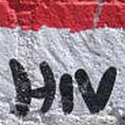 Posted June 30, 2014 NAIROBI, Kenya—The Health Policy Project (HPP) team in Kenya recently provided technical assistance to Kenya to prepare a successful application for funds for HIV programs from the Geneva-based Global Fund for AIDS, Malaria and Tuberculosis (Global Fund). In April 2014, the Global Fund approved Kenya’s application for a grant of US$223 million to cover HIV activities between 2014 and 2017. HPP’s assistance in the process included conducting financial analyses that provided justification for the budget levels requested.
Posted June 30, 2014 NAIROBI, Kenya—The Health Policy Project (HPP) team in Kenya recently provided technical assistance to Kenya to prepare a successful application for funds for HIV programs from the Geneva-based Global Fund for AIDS, Malaria and Tuberculosis (Global Fund). In April 2014, the Global Fund approved Kenya’s application for a grant of US$223 million to cover HIV activities between 2014 and 2017. HPP’s assistance in the process included conducting financial analyses that provided justification for the budget levels requested.
[ more ]- Building Public-Private Partnerships to Improve Health Services in Afghanistan
 Posted June 3, 2014 KABUL, Afghanistan—In 2012, with support from the USAID-funded Health Policy Project (HPP), the Directorate of Private Sector Coordination (DPSC) of the Afghan Ministry of Public Health (MoPH) established the Public-Private Dialogue Forum, which engages key private sector entities and MoPH staff to discuss private health sector concerns and reviews policies and regulations that affect the private health sector and potential public-private partnerships. The forum, which meets quarterly, offers a valuable opportunity for leaders in the private health sector to meet face-to-face with Minister of Public Health Dr. Suraya Dalil, who chairs the gatherings.
Posted June 3, 2014 KABUL, Afghanistan—In 2012, with support from the USAID-funded Health Policy Project (HPP), the Directorate of Private Sector Coordination (DPSC) of the Afghan Ministry of Public Health (MoPH) established the Public-Private Dialogue Forum, which engages key private sector entities and MoPH staff to discuss private health sector concerns and reviews policies and regulations that affect the private health sector and potential public-private partnerships. The forum, which meets quarterly, offers a valuable opportunity for leaders in the private health sector to meet face-to-face with Minister of Public Health Dr. Suraya Dalil, who chairs the gatherings.
[ more ]- Kenya Parliamentary Committee on Health Deliberates over Proposed Health Policy
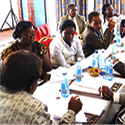 Posted May 6, 2014 NAIROBI, Kenya—Kenya’s Parliamentary Committee on Health begins a three-day meeting this week to conduct a final review of the Kenya Health Policy, which provides the framework that will guide health sector operations between 2014 and 2030. The workshop, supported by the USAID-funded Health Policy Project in Kenya (HPP/Kenya), will also review the draft Kenya Health Bill, a proposed law which will be the primary health law in the country, and on which other health-related laws will be based. The health bill will establish the legislative environment necessary to support the implementation of health-related provisions in the Constitution.
Posted May 6, 2014 NAIROBI, Kenya—Kenya’s Parliamentary Committee on Health begins a three-day meeting this week to conduct a final review of the Kenya Health Policy, which provides the framework that will guide health sector operations between 2014 and 2030. The workshop, supported by the USAID-funded Health Policy Project in Kenya (HPP/Kenya), will also review the draft Kenya Health Bill, a proposed law which will be the primary health law in the country, and on which other health-related laws will be based. The health bill will establish the legislative environment necessary to support the implementation of health-related provisions in the Constitution.
[ more ]- Voluntary Medical Male Circumcision for HIV Prevention
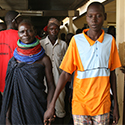 Posted May 6, 2014 Washington, DC—A new collection of 13 research studies, featured in PLOS ONE and PLOS Medicine and funded by the U.S. President’s Emergency Plan for AIDS Relief (PEPFAR) and the Bill & Melinda Gates Foundation, provides evidence from five African countries that safe, high quality voluntary medical male circumcision (VMMC) services performed by trained healthcare professionals in low-resource settings can be implemented and sustained at scale and have the potential to significantly prevent new HIV infections in adolescent and adult men [ more ]
Posted May 6, 2014 Washington, DC—A new collection of 13 research studies, featured in PLOS ONE and PLOS Medicine and funded by the U.S. President’s Emergency Plan for AIDS Relief (PEPFAR) and the Bill & Melinda Gates Foundation, provides evidence from five African countries that safe, high quality voluntary medical male circumcision (VMMC) services performed by trained healthcare professionals in low-resource settings can be implemented and sustained at scale and have the potential to significantly prevent new HIV infections in adolescent and adult men [ more ]- Afghanistan Pursues Global Investment in the Health Sector
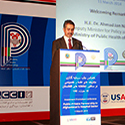 Posted March 11, 2014 KABUL, Afghanistan—On February 2, 2014, and March 11, 2014, Afghanistan’s Ministry of Public Health (MoPH), with support from the USAID-funded Health Policy Project (HPP), held its first international investment promotion events in Kabul and Dubai. Aimed at attracting private investment to Afghanistan’s hospital sector, these events were attended by over 180 participants, including investors, operators, and potential partners from around the world. [ more ]
Posted March 11, 2014 KABUL, Afghanistan—On February 2, 2014, and March 11, 2014, Afghanistan’s Ministry of Public Health (MoPH), with support from the USAID-funded Health Policy Project (HPP), held its first international investment promotion events in Kabul and Dubai. Aimed at attracting private investment to Afghanistan’s hospital sector, these events were attended by over 180 participants, including investors, operators, and potential partners from around the world. [ more ]- Dominican Republic's National Council for HIV and AIDS Celebrates Zero Discrimination Day
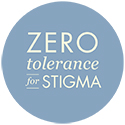 Posted March 6, 2014 SANTO DOMINGO, Dominican Republic—The National Council for HIV and AIDS (Consejo Nacional para el VIH y el SIDA [CONAVIHSIDA]) celebrated the first Zero Discrimination Day with an event addressing the impact of stigma and discrimination on individuals and public health efforts to reduce HIV transmission. Key government officials, including the Minister of Public Health, Attorney General, and the U.S. Ambassador attended the half-day event on March 6. [ more ]
Posted March 6, 2014 SANTO DOMINGO, Dominican Republic—The National Council for HIV and AIDS (Consejo Nacional para el VIH y el SIDA [CONAVIHSIDA]) celebrated the first Zero Discrimination Day with an event addressing the impact of stigma and discrimination on individuals and public health efforts to reduce HIV transmission. Key government officials, including the Minister of Public Health, Attorney General, and the U.S. Ambassador attended the half-day event on March 6. [ more ]- The Lancet Profiles PPD ARO Leader
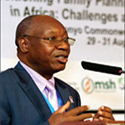 Posted January 22, 2014 LONDON, England—The January 4, 2014 issue of The Lancet features a profile of USAID-funded Health Policy Project (HPP) partner, Dr. Jotham Musinguzi. Dr. Musinguzi is the regional director of Partners in Population and Development Africa Regional Office (PPD ARO), which works to strengthen political support for family planning in Africa. Through HPP, PPD ARO provides technical assistance for advocacy targeting parliamentarians and other stakeholders in four countries (Ethiopia, Ghana, Malawi, and Uganda). [ more ]
Posted January 22, 2014 LONDON, England—The January 4, 2014 issue of The Lancet features a profile of USAID-funded Health Policy Project (HPP) partner, Dr. Jotham Musinguzi. Dr. Musinguzi is the regional director of Partners in Population and Development Africa Regional Office (PPD ARO), which works to strengthen political support for family planning in Africa. Through HPP, PPD ARO provides technical assistance for advocacy targeting parliamentarians and other stakeholders in four countries (Ethiopia, Ghana, Malawi, and Uganda). [ more ]- Saving Mothers, Giving Life: A Year of Results and Lessons Learned
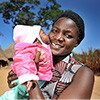 Posted January 15, 2014 WASHINGTON, DC—The USAID- and PEPFAR-funded Health Policy Project (HPP) joined the Centers for Disease Control and Prevention (CDC), USAID, and Columbia University at an event celebrating the successes of the first year of the Saving Mothers, Giving Life program. Saving Mothers, Giving Life (SMGL) is a five-year public-private partnership aiming to drastically reduce maternal mortality in sub-Saharan Africa. Since the program’s inception in June of 2012 maternal mortality rates in pilot districts were cut by a third, with a 30 percent decrease in maternal deaths in Uganda, and a 35 percent decrease in Zambia. [ more ]
Posted January 15, 2014 WASHINGTON, DC—The USAID- and PEPFAR-funded Health Policy Project (HPP) joined the Centers for Disease Control and Prevention (CDC), USAID, and Columbia University at an event celebrating the successes of the first year of the Saving Mothers, Giving Life program. Saving Mothers, Giving Life (SMGL) is a five-year public-private partnership aiming to drastically reduce maternal mortality in sub-Saharan Africa. Since the program’s inception in June of 2012 maternal mortality rates in pilot districts were cut by a third, with a 30 percent decrease in maternal deaths in Uganda, and a 35 percent decrease in Zambia. [ more ]- Dr. Suneeta Sharma Appointed HPP Project Director
 Posted January 8, 2014 WASHINGTON, DC—The United States Agency for International Development (USAID-funded Health Policy Project is pleased to announce Suneeta Sharma, PhD, as its new project director. Dr. Sharma brings more than 20 years of experience in health policy, financing, and equity. She has worked in both academia and global health programming, focusing on policy and evidence-based solutions to health systems challenges at the country level. [ more ]
Posted January 8, 2014 WASHINGTON, DC—The United States Agency for International Development (USAID-funded Health Policy Project is pleased to announce Suneeta Sharma, PhD, as its new project director. Dr. Sharma brings more than 20 years of experience in health policy, financing, and equity. She has worked in both academia and global health programming, focusing on policy and evidence-based solutions to health systems challenges at the country level. [ more ]- New Skills Help Afghan Ministry of Public Health Track Expenditure Data
 Posted January 6, 2014 KABUL, Afghanistan—When governments are able to track health spending, they benefit from increased accountability and transparency, as well as better-informed decision making for budgeting. To monitor the country’s health spending, since 2008 the Afghanistan Ministry of Public Health (MOPH) has used the powerful National Health Accounts (NHA) tracking tool to understand who is spending health funds and where and how those funds are being spent. [ more ]
Posted January 6, 2014 KABUL, Afghanistan—When governments are able to track health spending, they benefit from increased accountability and transparency, as well as better-informed decision making for budgeting. To monitor the country’s health spending, since 2008 the Afghanistan Ministry of Public Health (MOPH) has used the powerful National Health Accounts (NHA) tracking tool to understand who is spending health funds and where and how those funds are being spent. [ more ]- Building Afghanistan’s Capacity to Improve Healthcare Efficiency and Sustainability
 Posted January 6, 2014 KABUL, Afghanistan—In 1979, the year the Soviets invaded Afghanistan, Mohammad Zawoli was born in a village in the eastern province of Ghazni. Throughout the war-torn years of his childhood, a time when many Afghans lost access to even basic education, Zawoli learned to read from his family’s library of religious books, and enrolled in a local school that reopened when he was 12. He let nothing get in the way of his education, and eventually graduated with a degree in macroeconomics from Kabul University. [ more ]
Posted January 6, 2014 KABUL, Afghanistan—In 1979, the year the Soviets invaded Afghanistan, Mohammad Zawoli was born in a village in the eastern province of Ghazni. Throughout the war-torn years of his childhood, a time when many Afghans lost access to even basic education, Zawoli learned to read from his family’s library of religious books, and enrolled in a local school that reopened when he was 12. He let nothing get in the way of his education, and eventually graduated with a degree in macroeconomics from Kabul University. [ more ]

